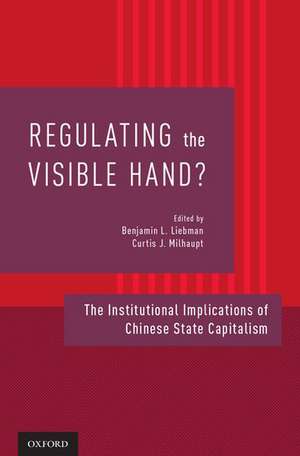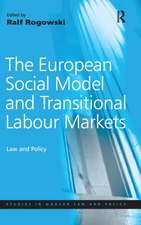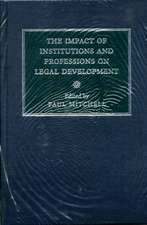Regulating the Visible Hand?: The Institutional Implications of Chinese State Capitalism
Editat de Benjamin L. Liebman, Curtis J. Milhaupten Limba Engleză Hardback – 10 dec 2015
Preț: 568.66 lei
Preț vechi: 810.81 lei
-30% Nou
Puncte Express: 853
Preț estimativ în valută:
108.81€ • 113.91$ • 90.04£
108.81€ • 113.91$ • 90.04£
Carte tipărită la comandă
Livrare economică 25-31 martie
Preluare comenzi: 021 569.72.76
Specificații
ISBN-13: 9780190250256
ISBN-10: 0190250259
Pagini: 480
Dimensiuni: 236 x 155 x 31 mm
Greutate: 0.82 kg
Editura: Oxford University Press
Colecția OUP USA
Locul publicării:New York, United States
ISBN-10: 0190250259
Pagini: 480
Dimensiuni: 236 x 155 x 31 mm
Greutate: 0.82 kg
Editura: Oxford University Press
Colecția OUP USA
Locul publicării:New York, United States
Recenzii
The book can safely be recommended to anyone interested in Chinese political economy in general or SOEs specifically ... The ground covered through all three parts is vast and conceptually envelops SOEs in China between various points of view dealing with the political, social and global aspects, all of which have an unfortunate tendency of absence in more traditional and sterile research. Indeed, the relatively large number of chapters, expert contributors and content puts this volume halfway toward becoming a handbook on Chinese state capitalism ... With the logical arch of this volume spanning from the regulation pertaining to the largest economic subjects in China and finishing in the comparative issues of Chinese capitalism, unafraid to tackle questions such as labor organization, Party political elites and international implications along the way, it is well poised to become another useful voice.
Notă biografică
Benjamin L. Liebman is the Robert L. Lieff Professor of Law and Director of the Center for Chinese Legal Studies at Columbia University Law School. His current research focuses on Chinese tort law, on Chinese criminal procedure, on the impact of popular opinion and populism on the Chinese legal system, and on the evolution of China's courts and legal profession. Professor Liebman is recognized as one of the leading scholars of Chinese law, and consulted with both the U.S. and Chinese governments on legal developments in China. He previously served as a law clerk to Justice David Souter and to Judge Sandra Lynch of the First Circuit. He is a graduate of Yale, Oxford, and Harvard Law School.Curtis J. Milhaupt is the Parker Professor of Comparative Corporate Law, Director of the Parker School of Foreign and Comparative Law, the Fuyo Professor of Japanese Law, and Director of the Center for Japanese Legal Studies--all at Columbia University Law School. He is also a member of Columbia University's Weatherhead East Asian Institute, the American Law Institute, and the European Corporate Governance Institute. His research, which focuses on comparative corporate governance, the legal systems of East Asia, state capitalism, and the relationship between legal institutions and economic development, has been featured in The Economist, the Financial Times and The Wall Street Journal, and has been widely translated.













